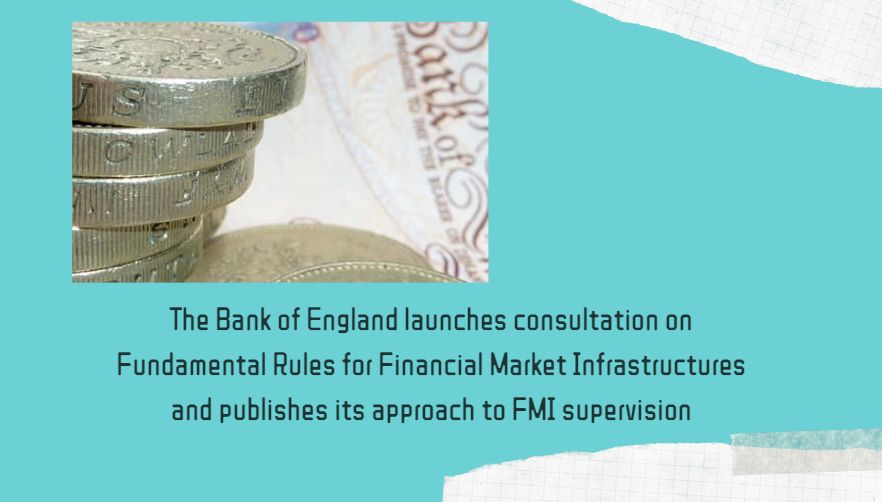The Bank of England's approach to cost benefit analysis
Why we do cost benefit analysis and the costs and benefits we assess
CBA is an integral part of good policymaking. Supported by the independent CBA Panel, CBA enhances the transparency of our policymaking and our accountability and helps us make better policies.
In line with our primary objective to protect and enhance the stability of the UK financial system, the most important benefit considered in CBAs undertaken by the Bank is the impact that policy change may have on financial stability, and the economic output of the UK. Our conceptual framework for measuring the financial stability benefits of FMI regulation is grounded in the extent to which regulation can reduce the expected economic cost of a financial crisis due to FMI disruption or failure.footnote[1] The conceptual framework considers how the expected cost of a crisis can be understood through the probability of a crisis occurring, the losses it would lead to, and the value of economic output exposed.
When evaluating the benefits of FMI regulation, we also consider the direct and indirect benefits to FMIs and their market participants. For instance, with regards to our secondary objective, we consider any benefits to innovation through regulation that enables FMIs to use new technologies or ways of delivering their service that enhances efficiency, economy and quality of these services. Where regulation reduces direct costs to FMIs, this may be invested in innovation to support new and existing services. Decreased costs may attract new entrants to provide FMI services, which may increase competition in, and the resilience of, that market.
Regulation can impose costs on FMIs, which may be passed on to market participants and lead to negative market outcomes. There can sometimes be a trade-off between the costs and benefits of regulation. If too lax, regulation will impose low costs but fail to deliver the benefits described above. If too stringent, then the net benefits of regulation can reduce through high implementation costs or unintended consequences. The Bank aims to achieve FMI regulation that is neither too lax nor too stringent, where benefits exceed costs. We may recalibrate our policies from time to time in the light of experience.
How we do cost benefit analysis as part of policymaking
As part of policy development, the Bank has a structured framework for undertaking CBA that involves: developing the case for action; assessing expected costs and benefits; considering the uncertainties; and forming an overall judgement on the net impact of a policy.
The Bank takes a proportionate approach to the use of CBA in its policy making process and makes judgements about whether a CBA is required and, if so, whether it is reasonable to estimate the expected costs and benefits of a policy proposal, using criteria set out in FSMA.
The Bank will communicate CBA as part of our public consultation process in our CPs. Final policy statements will include feedback received on the CBA and may include a revised CBA to reflect feedback, or amendments to the policy made following consultation.
How we analyse and estimate costs and benefits
This Statement of Policy sets out how we assess costs and benefits. A key step in analysing the costs and benefits of a policy is to identify and evidence the causal chains through which a policy affects changes in the behaviour of affected FMIs and market participants in ways that impact on markets and, in turn economic outcomes. These causal chains help the Bank identify the benefits and costs of regulation that can arise through multiple channels. CBAs highlight where these channels are relevant.
The Financial Services and Markets Act 2000 (FSMA) (as amended by the Financial Services and Markets Act 2023) requires costs and benefits to be estimated where reasonably possible, and the SoP outlines a range of tools and techniques the Bank will use to conduct quantitative assessments. Direct costs to FMIs are the most straightforward to estimate, whereas it is harder to estimate indirect impacts on FMIs and affected market participants.
Cost Benefit Analysis Panel (CBA Panel)
The Bank is required under FSMA to consult the CBA Panel on the preparation of relevant CBAs ahead of public consultation. The Panel also reviews how the Bank is performing more generally in carrying out its duties with regards to CBA and may provide recommendations.
The CBA Panel plays an important role as a critical friend in supporting increased transparency and scrutiny of the Bank’s policymaking by providing regular, independent input into the Bank’s CBAs. The CBA Panel brings considerable experience and knowledge of CBA and the financial services sector.























































First, please LoginComment After ~